7 Associate cricketers who had the talent to make it big in international cricket
7 Min Read
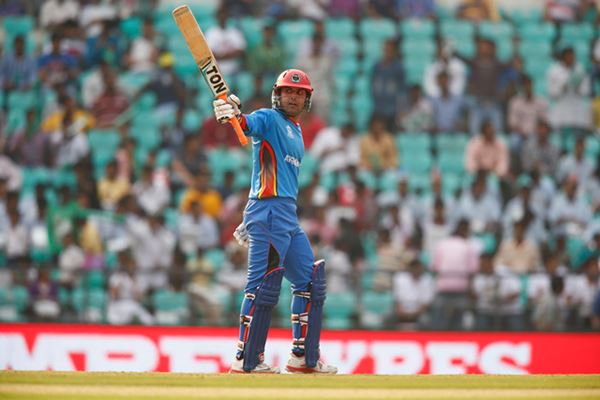

International Cricket Council (ICC) Associate Members are the nations where cricket is established and organised but do not qualify for Full Membership because of the lack of fully developed cricket structure within the country.
Despite the shortage of proper facilities and lack of international exposure, virtually every associate nation has had a player of genuine class. A player who appears to have the potential of standing tall against the best bowlers in the business.
A lot of their performances go unnoticed. If these guys were a part of a full team would have definitely made a remarkable impact at the highest level. Here is a look at 7 such cricketers who were not fortunate enough to find a team that could do justice to their individual skills:
1. Mohammad Nabi:

Mohammad Nabi a sweet timer of the ball as a dominant middle order batsman, an off-spinner with a golden arm and a calm mind as a captain along with the never-say-die attitude has been his strength contributing to his staggering growth as an Associate cricketer.
His growth has ultimately led to the great progress of Afghanistan as a cricketing nation in a very short time which also meant that Nabi has been fully committed to Afghanistan cricket despite being a popular figure in most of the T20 leagues all over the world.
Still with a lot of cricket left in him and with age on his side, there is a lot Nabi would desire to achieve including a Test status for Afghanistan and giving the bigger teams a run for their money.
2. Ryan ten Doeschate:
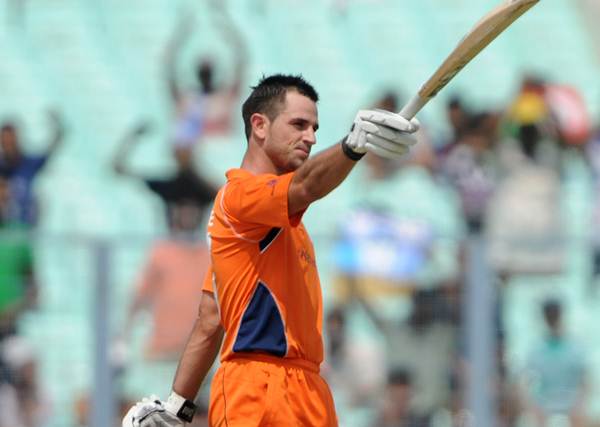
Sunil Gavaskar once said that to succeed in international cricket, one need to have a stronger temperament irrespective of the technique he possesses and Ryan ten Doeschate has got that in abundance along with a sound technique. He can get into any established team on the basis of ballistic striking or his competent bowling skills alone. His ICC Associate and Affiliate Player of the Year Award in 2008, 2010 and 2011 speak why he is considered as the best player from a non-Test playing nation.
With the surge of T20 leagues around the world and some issues with the cricket management in Netherlands, Doeschate decided to become a T20 freelancer and has been welcomed in almost every T20 league around the globe. In fact, he was the first Associate player to bag an IPL contract. His ODI batting average of 67 (though he has played only 33 ODIs) is higher than that of any other batsman.
It is obvious that he would have loved to achieve more as an international cricketer but among all the Associate and Affiliate cricketers, if anyone has come closest to doing justice to his ability, then it is him.
3. William Porterfield:
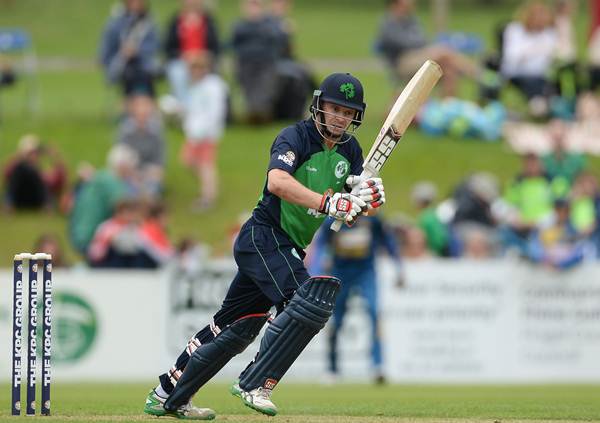
The current Irish captain, William Porterfield has been instrumental in Ireland’s rise as a cricketing nation, both as captain and as a batsman.
With England’s search for the perfect opening partner for Alastair Cook and many Irish players flirting with their England chances, Porterfield could always be a good option for ECB but he kept his focus solely on Ireland.
Leading Ireland from an every age level of U13 and onwards, Porterfield has brought Irish cricket to a stage where Ireland have pressed ICC for Full Membership. As a batsman, he is a technician and an attractive-to-watch opener who has scored as many as 7 hundreds (most for Ireland) in less than 100 ODIs and is the only Irishman to score a T20I hundred. If everything goes well, he might be the first ever Test captain for Ireland which would be a perfect reward for his loyalty towards Ireland cricket and his cricketing abilities.
4. Aasif Karim:
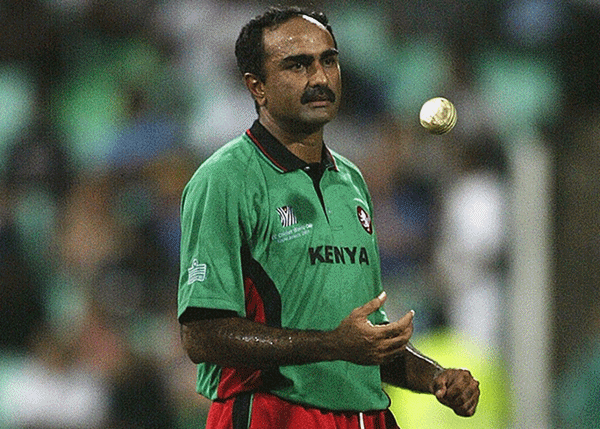
If cricketers were allotted to national teams on the basis of an auction purely based on talent then Aasif Karim could be the most popular left-arm spinner of that auction.
He featured in each of Kenya’s first 25 official ODIs but his finest moment came after his first retirement. After retiring from the game at the end of the 1999 World Cup, he was persuaded to return in an attempt to add experience to Kenya’s World Cup squad in 2003 where he bowled one of the best spells of the tournament. By the time Karim came to bowl, the match was done and dusted in terms of any competition as Australia were just 66 runs away from a victory with 35 overs and 8 wickets still in hand but it was enough for Karim to stamp his class in the game. He bowled an immaculate spell of 8.2-6-7-3 dismissing Ricky Ponting without conceding a run in his first over. Australia still won the match but Aasif Karim won many hearts and the Man of the Match award.
With that game, Karim showed his class to the world as another skilled player who deserved a much better career. That Australian team was one of the best ODI teams ever that was supposed to win all the games of that World Cup but for 50 deliveries, Karim pushed them on backfoot questioning their ability every over.
5. Steve Tikolo:
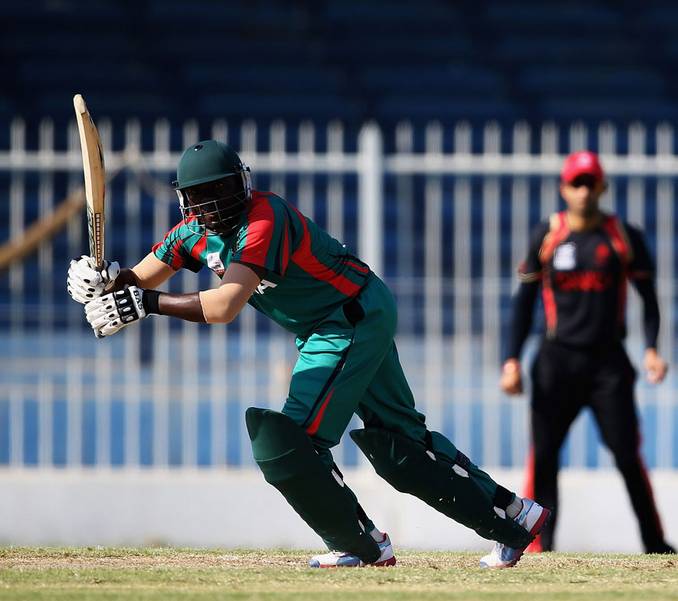
Every cricket fan born in the 90s or those who started following the game during the 90s or before will be familiar with this name. 1996-2003 were the golden years of Kenyan cricket and Steve Tikolo played a pivotal role during this time period. It was he who put Kenya on the ODI-map with his innings of 147 against Bangladesh in 1997 ICC Trophy final granting a new ODI status to Kenya along with a second successive World Cup qualification.
His inspiring captaincy and some crucial all-round performances took Kenya to the World Cup semi-finals which also led to calls for Kenya to be granted a Test status but unfortunately the game collapsed within the country and the board fell out with the stakeholders.
Kenyan cricket has been going under a slump since then falling towards a slow death but Steve Tikolo stands tall as the country’s greatest player till date. He is the highest run scorer for Kenya as well as their highest wicket-taker in ODI cricket. He was called back in the Kenyan side at the age of 42 for the 2013 ICC World T20 Qualifiers which shows his importance and measure of the World class ability which he brought to the cricket in the country.
6. John Davison:
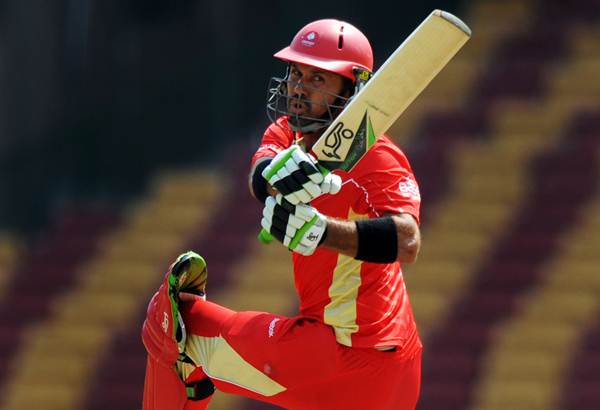
John Davison is probably the only Canadian player who ever had a major international record to his name. Even though that record stood for only 4 years but Davison took world cricket by storm when he blasted the fastest World Cup century in just 67 balls against a very decent Caribbean attack.
It was not a ‘Once in a blue moon’ innings as he followed the fastest World Cup ton with the third-fastest World Cup fifty, ended his World Cup campaign being the highest run-scorer and also the highest wicket-taker for Canada in the tournament and then maintained decent all-round performances at the first-class level for Canada.
In 2004, Davison took 17/137 in a first-class game for Canada, the best since Jim Laker’s 19/90 in 1956 against Australia which is a massive achievement. His World Cup hundred was one of the talking points of the tournament. Seldom it happens that an associate player lights up a world event and to his credit, it was only his debut international tournament.
He also played a lot of domestic cricket in Australia but most of his career highlights came only while playing for Canada. The downfall of Canada cricket meant there was not much development for Davison as a cricketer but he will always be remembered as one of the better cricketers of Canadian cricket. During 2013-14 Ashes series, he was also hired as the spin bowling consultant by Australia.
7. Kyle Coetzer:
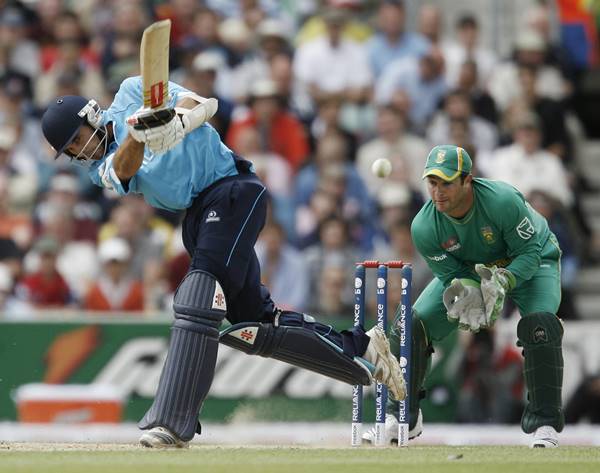
With a name that sounds South African and looks resembling Neil Mckenzie (especially under the helmet), Kyle Coetzer must also be wishing that he was playing his cricket for South Africa.
He has been a prominent name in Scotland’s batting line up since his ODI debut. An ODI average of 39.08 (though in a handful of ODIs), a personal best of 156 which is the highest World Cup score by an associate batsman and a solid county career with Durham and Northamptonshire indicates his promising skills as a batsman.
But again the problem is the exposure at international level. Coetzer has been an international cricketer for Scotland for over 8 years and has always been a regular member of the side but he only has 27 ODIs and 35 T20Is to show for it.
Written by Shubh Aggarwal
Download Our App